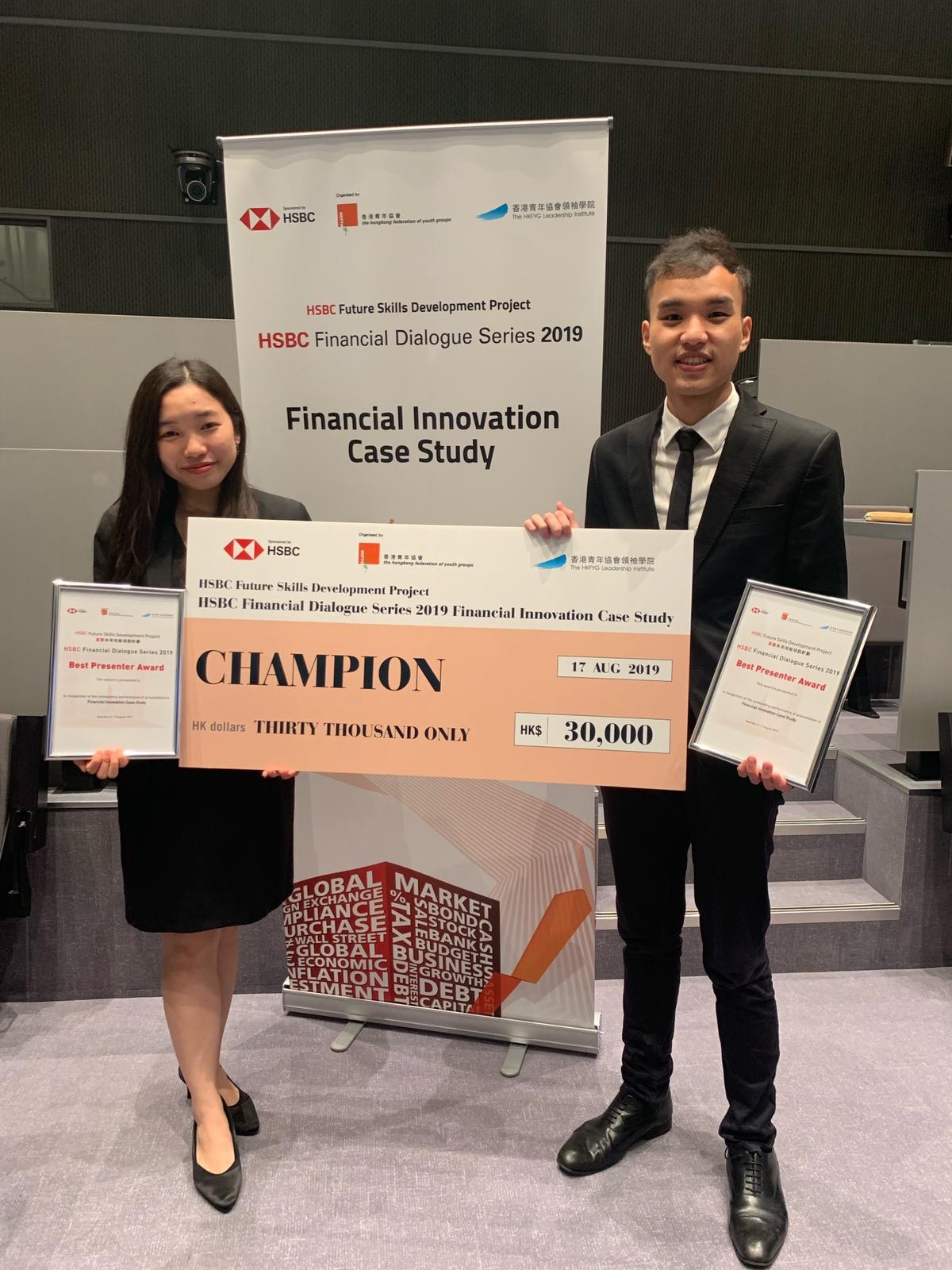Business on the Cutting Edge
Business on the Cutting Edge
Perkins Cheung, a Year 3
BEcon&Fin student, recently delved into the intersection between finance
and technology. His team, Sequoia, was the Champion of HSBC Financial Dialogue
Series 2019: Financial Innovation Case Study, which called for tech-driven
solutions in the realm of wealth management.
Responding
to data security needs, Sequoia had developed a solution of numberless cards.
“Instead of relying on traditional digit numbers,” Perkins explained,
“numberless cards use one-time transaction codes to prevent identity theft.
This enhances cybersecurity.”
The rise of numberless cards is just one of the many sweeping changes brought to the financial world by modern technology. According to Perkins, this evolution is for a better life.

“Counter-opinions are what make ideas sound.”
“When
technology replaces human labour, people can pool their effort into
higher-level issues such as business relationship management. We won’t have to
waste time on redundant tasks like data entry anymore.”
--> In line with this human-centred approach, Perkins found the most important facet of the competition to be team collaboration. “My team consisted of six people,” he
explained, “all with different kinds of experiences and specialisations. This diversity
gave us leverage.”
“For example, one of our teammates is a law student, we were able to tackle the legal aspect of data security. One teammate who had interned at a major bank was able to share his knowledge on tailoring the customer experiences.”
But
would vastly different perspectives sow discord and drag performance down?
Perkins disagreed. “Debugging is very important in developing solutions,” he
argued, “and this process necessarily involves rebuttals.”
“We
want those rebuttals – without
different counter-opinions, we won’t be able to see the whole picture.”
He
offered up a thought-provoking oxymoron: “Counter-opinions are what make ideas
sound.”
Because
of this, Perkins advised against teaming up with friends in case competitions. “Friends
usually share similar experiences and modes of thinking,” Perkins said dismissively.
“If you only team up with friends, you might not benefit from new
perspectives.”
“It’s
also great to expand your network and draw from other people’s backgrounds.”
To
Perkins, another key to succeeding in a case competition is staying connected with
the case. “To create a good user experience, you need to know how people feel,”
he explained in earnest.
“Think
to yourself: what would your client think when they adopt your solution? Is it
practical for them? Always be aware of your audience and their experiences.”
As
we all know, Hong Kong is practically teeming with business students. So how
can one stand out in such stiff competition? Perkins offered the following
advice, “Give everything a try! HKU offers a lot of resources, such as intensive
training programmes and networking opportunities. Make good use of them and
reach out more.”
Written by:
Gabrielle Tse
Year 3, Faculty of Arts and Faculty of Law
April 2020


